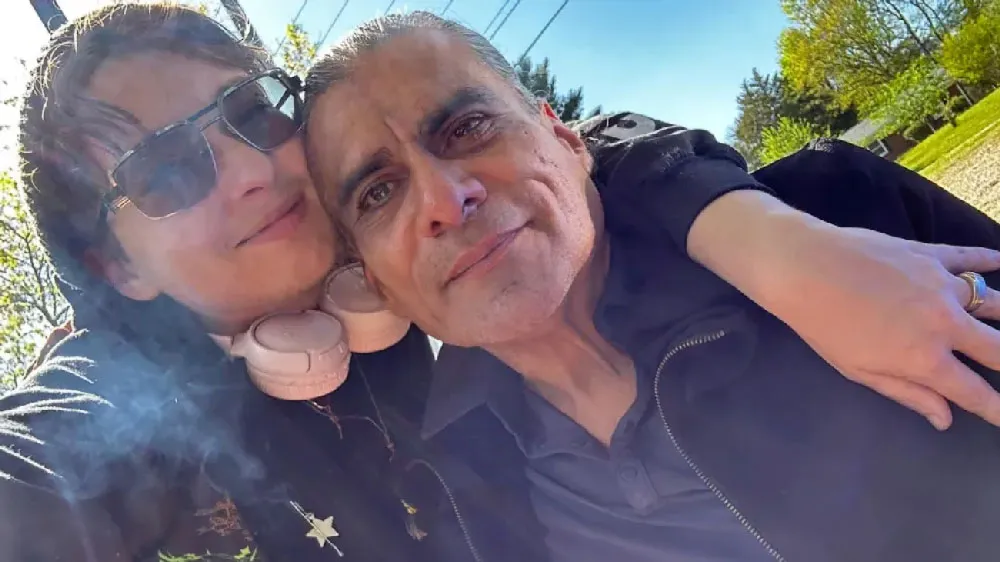October 8, 2013
Hannibal - Season One
Kilian Melloy READ TIME: 3 MIN.
In Thomas Harris' novels (and the movie versions they spawned), Dr. Hannibal Lecter --�"Hannibal the Cannibal," a serial killer with advanced cooking skills who enjoyed his victims as victuals -- gained prominence with each successive book, as the quality of the work declined. What would extending the franchise as a TV series do to the character? And how could Bryan Fuller, a producer one associates with quirky fare like "Wonderfalls" and "Pushing Daisies," pull it off?
In a word: Marvelously, at least so far. FBI agent Will Graham (Hugh Dancy) is more a descendant of "Monk" and the new takes on Sherlock Holmes (from the BBC's "Sherlock" and NBC's "Elementary") than the man of the novels, with his simple yet sophisticated tastes. This version of Graham is jittery and socially phobic; nonetheless, when his boss, Jack Crawford (Laurence Fishburne), pulls him into the field to investigate a grisly series of murders targeting teenage girls, Graham, allows himself to become entangled in the case.
Crawford also enlists Hannibal Lecter, an esteemed psychotherapist, as both Graham's personal mental health task force and a consultant on the case. Lecter is cool and crisp, a stark contrast to the sweaty, perpetually freaked-out Will, whose mental state deteriorates over the course of the season. As played by the extraordinary Danish actor Mads Mikkelsen, Hannibal is everything Anthony Hopkins made him in the films, and everything Harris insinuated in the novels: Scary-smart and just plain scary, but also a genuine intellectual.
The series uses other characters from the books and films, too, including tabloid journalist Freddie Lounds (female, in this case, and played by Lara Jean Chorostecki) and the smarmy Dr. Chilton (Ra�l Esparza). New characters complete the cast, with "Kids in the Hall"'s Scott Thompson featured as a lab tech with a decidedly gay affect.
The production uses state of the art visual effects and pushes the envelope on a weekly basis. (How do you get an image of a man playing a corpse like a cello past the network censors?) It also explores radical new territory in visual style and sound design. The set's extras delve into these aspects of the series, and offer absorbing tidbits like the script and storyboard for the pilot episode.
"Hannibal" embraces its source material with the relish we want it to, and draws out the experience in the most delicious manner, setting out each installment like a dish on a 13-course menu. (Indeed, each episode is named for a course of an extravagant French meal, with titles like "Amuse-Bouche," "Entr�e," ""Buffet Froid," and so on, right up to the season-ending "Savoureux." How Fuller will follow this up come Season Two (much less how he will execute the full seven-season run he has said he intends for the series) is, at this point, hard to guess -- but then again, so was this delectable first clutch of episodes before Fuller served us the "Ap�ritif" of the very first groundbreaking episode.
The special features are delectable, also, delving into the series' origins, the role played by (carefully stylized) food in each episode, the visual effects, and the music and sound design, which are, in this case, unusually closely intertwined. You'll enjoy seeing how this show is made a whole lot more than you'd like knowing what goes into sausage.
Fuller says he wants this series to be "the definitive Hannibal Lecter story." With this first season's feast, he's well on his way to delivering.
"Hannibal: Season One"
Blu-ray and Digital HD
$39.97
http://nbcshop.nbcuniversalstore.com
Kilian Melloy serves as EDGE Media Network's Associate Arts Editor and Staff Contributor. His professional memberships include the National Lesbian & Gay Journalists Association, the Boston Online Film Critics Association, The Gay and Lesbian Entertainment Critics Association, and the Boston Theater Critics Association's Elliot Norton Awards Committee.


